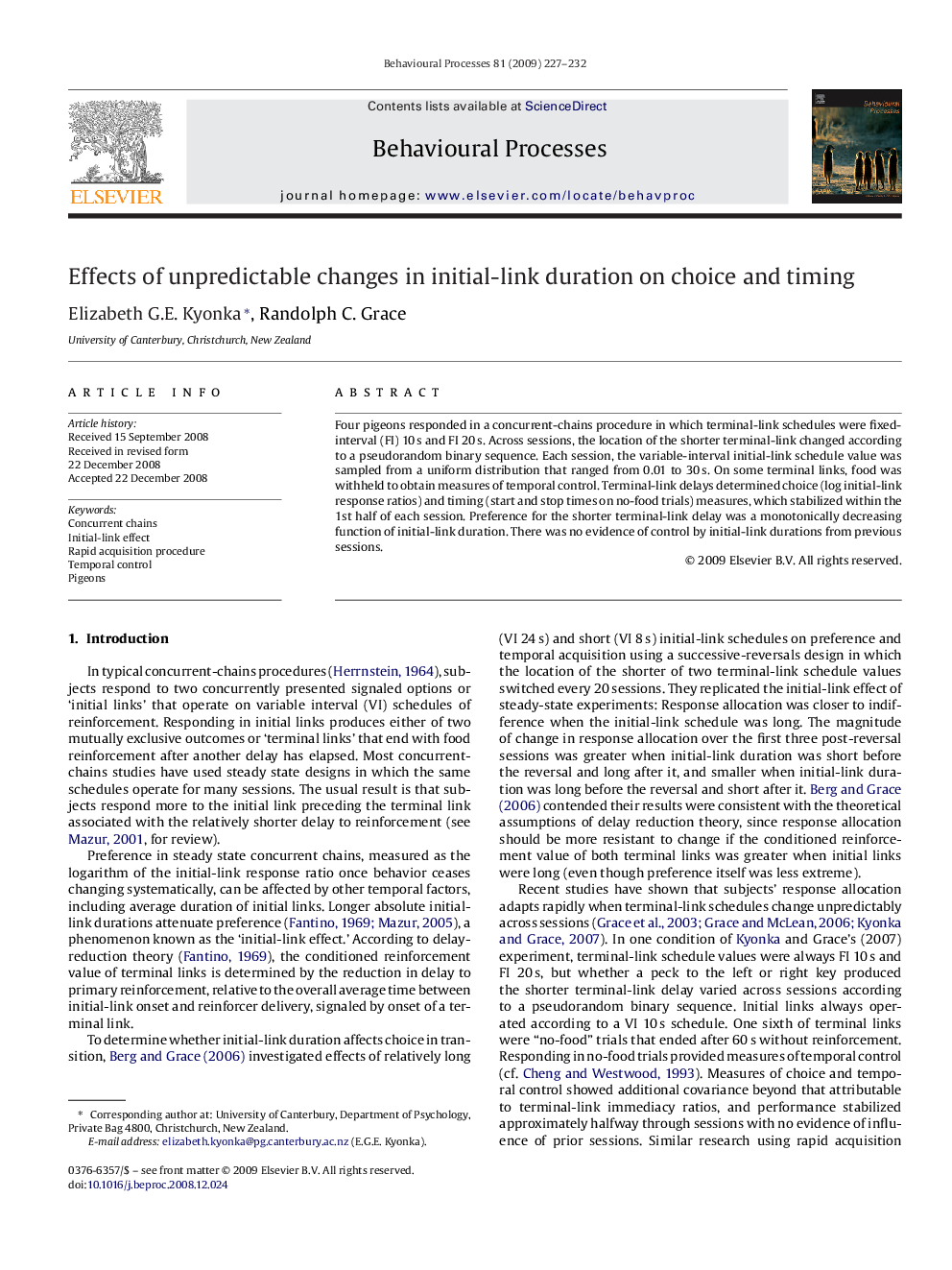| Article ID | Journal | Published Year | Pages | File Type |
|---|---|---|---|---|
| 2427350 | Behavioural Processes | 2009 | 6 Pages |
Four pigeons responded in a concurrent-chains procedure in which terminal-link schedules were fixed-interval (FI) 10 s and FI 20 s. Across sessions, the location of the shorter terminal-link changed according to a pseudorandom binary sequence. Each session, the variable-interval initial-link schedule value was sampled from a uniform distribution that ranged from 0.01 to 30 s. On some terminal links, food was withheld to obtain measures of temporal control. Terminal-link delays determined choice (log initial-link response ratios) and timing (start and stop times on no-food trials) measures, which stabilized within the 1st half of each session. Preference for the shorter terminal-link delay was a monotonically decreasing function of initial-link duration. There was no evidence of control by initial-link durations from previous sessions.
